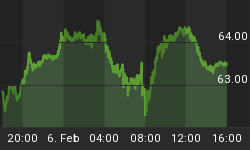Last week I was very pleased that hearings were held on the independence of the Federal Reserve system. My bill HR 1207, known as the Federal Reserve Transparency Act, was discussed at length, as well as the general question of whether or not the Federal Reserve should continue to operate independently.
The public is demanding transparency in government like never before. A majority of the House has cosponsored HR 1207. Yet, Senator Jim DeMint's heroic efforts to attach it to another piece of legislation elicited intense opposition by the Senate leadership.
The hearings on Capitol Hill provided us with a great deal of information about the types of arguments that will be levied against meaningful transparency and how the secretive central bankers will defend the status quo that is so beneficial to them.
Claims are made that auditing the Fed would compromise its independence. However, by independence, they really mean secrecy. The Fed clearly cherishes its vast power to create and spend trillions of dollars, diluting the value of every other dollar in circulation, making deals with other central banks, and bailing out cronies, all to the detriment of the taxpayer, and to the enrichment of themselves. I am happy to challenge this type of "independence".
They claim the Fed is endowed with special intellectual abilities with which to control the market and that central bankers magically know what the market needs. We should just trust them. This is patently ridiculous. The market is a complex and intricate thing. No one knows what the market needs other than the market itself. It sends signals, such as prices, that should be reacted to and respected, not thwarted and controlled. Bankers are not all-knowing and cannot ignore the rules of supply and demand. They might act as if they are, but their manipulation of the market just ends up throwing it wildly off balance, which gives us the boom and bust cycles.
They claim the Fed must remain apolitical. No organization is apolitical that relies on the President to appoint the Chairman. In fact, it is subject to the worst sort of politics - power to create trillions of dollars and affect the value of every dollar in the country without the accountability of direct elections or meaningful oversight! The Fed typically enacts monetary policy that is favorable to particular administrations close to elections, to the detriment of long term considerations. They do this partly because of the political appointee process for the Chairmanship.
The only accountability the Federal Reserve has is ultimately to Congress, which granted its charter and can revoke it at any time. It is Congress's constitutional duty to protect the value of the money, and they have abdicated this responsibility for far too long. This was the issue that got me involved in politics 35 years ago. It is very encouraging to finally see the issue getting some needed exposure and traction. It is regrettable that it took a crisis of this magnitude to get a serious debate on this issue.















